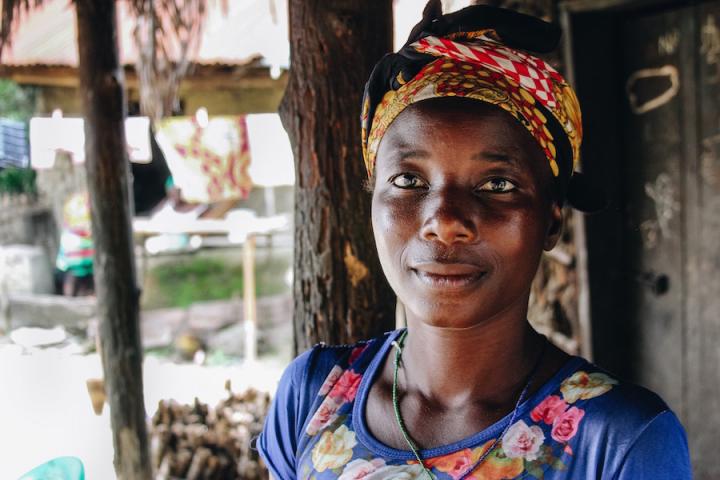Sustainable Programme of Cervical Cancer Screening
In Malawi, cervical cancer is the most frequent cancer among women of a reproductive and economically important age (45.4% of female cancers), with an 80% mortality, and numbers projected to increase over the next two decades.

Christine Campbell and Heather Cubie lead a large Scottish Government Grant – “Moving towards sustainability: strengthening rural health facilities, upskilling providers and developing mentoring capacity to support roll-out of cervical cancer 'screen and treat' services across Malawi”.
Through Christine and Heather’s initial programme almost 30,000 women have been screened to date, with plans to reach another 60-80,000. Over fifty staff have been trained, a mentoring programme is in place, and screening is being introduced in rural hospitals and health centres. The project informed recent World Health Organisation guidance on treatment of early cancers.
Malawi has the highest global mortality rate from cervical cancer, and since 2013 we've been partnering with Nkhoma CCAP Hospital to provide screening for this disease using a technique called Visual Inspection with Acetic Acid (VIA) - vinegar! - and treatment called thermal coagulation/ ablation, drawing on Scottish expertise in use of this treatment. Over 18,000 women were screened in the first project: results were published in the scientific literature and have contributed to updated World Health Organisation guidance on treatment of cervical cancer lesions in low resource settings.
Our current project, the MalSoc Screening project, continues with Nkhoma CCAP Hospital, but has also widened to partner with additional hospitals and NGOs. We're working with partner hospitals and their associated health centres in Northern, Central and Southern Malawi to deliver screening and treatment where possible close to home through training many more nurses in use of 'screen and treat', helping equip consulting rooms where needed, and developing a mentoring programme for ongoing peer support and shared learning.
The project is linked with the Scottish Global Health Collaborative and we also work closely with medical students visiting Nkhoma Hospital for elective visits, as well as with nursing students at Nkhoma Hospital.
Over the course of many visits to Malawi over the past several years I've developed close working relationships with colleagues in Malawi, and have an ever increasing understanding of and respect for the dedication of Malawians to making a difference within their own communities.
An initial grant was awarded in 2013
Developing a sustainable programme of cervical screening using VIA (visual inspection with acetic acid) and HPV (human papillomavirus) testing in rural Malawi.
When the programme started in 2013 there were currently no national programmes for cervical cancer prevention through immunisation or screening, contributing to the high burden of mortality. While many women now survive childbirth only to die later of preventable cervical cancer. Inadequate access to treatment, ostracisation of women with severe symptoms of cervical cancer, and limited palliative care services are additional features.
The project worked out of Nkhoma hospital in Malawi and built on an existing Scottish Government funded project of the Global Health Academy
Project Aims
This project will develop a sustainable cervical cancer prevention programme through three linked elements:
- Increased provision of screening clinics
- A ‘train the trainers’ skills model for staff in Nkhoma Hospital
- Development of staff skills in data collection and monitoring to inform future services
Project Team
Expertise in the team spans clinical, international and development projects and is a live example of collaborative working across NHS Lothian and the University of Edinburgh. Both Professor Cubie and Dr Campbell are members of GHA and will receive support from Dr Liz Grant, Director, GHA and International Advisor for NHS Lothian, and Dr Isabel Bruce, providing project co-ordination and data management. Clinical skills will be provided by NHS Lothian consultant, Dr Graeme Walker and Nurse Colposcopist, Hilary Brown, who have worked in Malawi in Obstetrics and Gynaecology, including Nkhoma. Colleagues in Nkhoma Hospital bring expertise in provision of reproductive and other health interventions in the local context, essential to delivery of the project.
More information on project team members:
Professor Heather Cubie
Funding
Funding for this 3 year project (2013-2016) has been given by the Scottish Government International Development Fund for Malawi.

